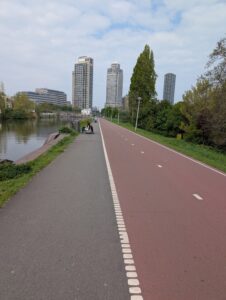 Today the Netherlands celebrates 80 years of peace and freedom.
Today the Netherlands celebrates 80 years of peace and freedom.
It began yesterday at 8 pm with 2 minutes of silence, around the country, called Remembrance Day. Dutch sacrifice was honored, but so were the men from elsewhere, like the American paratroopers whose story I learned about at Mook.
At precisely midnight, Liberation Day began. In Wageningen, where the German surrender was signed, torches were lit to carry the good news everywhere. In 14 cities, there will be huge parties and concerts today. Hundreds of towns will make a special soup, and pass it around, celebrating the end of hunger.
America helped win the war in the Netherlands. We guaranteed peace with the Marshall Plan. The Netherlands you see today, with its clever buildings and bike paths, is all post-war. The Common Market, now the European Community, created prosperity and NATO guaranteed security.
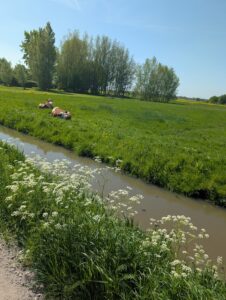 Today’s Netherlands is a bright and beautiful country. There are universities in nearly every large city. There are tech companies like ASML. The Netherlands is the second largest exporter of food in the world. All of this is thanks to peace and freedom, to vrede and vrijheid.
Today’s Netherlands is a bright and beautiful country. There are universities in nearly every large city. There are tech companies like ASML. The Netherlands is the second largest exporter of food in the world. All of this is thanks to peace and freedom, to vrede and vrijheid.
Americans, meanwhile, have been fighting for three generations. My friend T Bass fought in Vietnam and wore those scars the rest of his life. My brother-in-law Angelo served in Operation Desert Storm, and his son serves today in Poland.
War has become the primary occupation of my fellow Americans, and our primary preoccupation. When there are no foreigners to kill, we make war on ourselves. City battles suburb, men fight women, whites oppress blacks, and liberals war with conservatives, all egged on by a man who got his wealth by avoiding responsibility.
Maybe it’s what we deserve.
VredeGoed
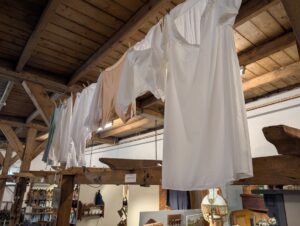
The Netherlands was a natural swamp. The only way to raise land above it was to build canals, by hand, every few meters, to hold off the water. Jan showed me the implements with which people pulled up the topsoil, pressing it, cutting it, and drying it to make the light bricks of peat that heated their shacks and made life possible.
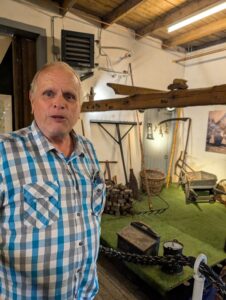
This is how life proceeded for hundreds of years. Every acre was pulled laboriously out of the swamp. Everything that could be used was used. The Dutch had large families, who shared tiny shacks, because that was necessary to survive. A baby would be set in a cupboard to sleep, its older brother or sister placed in a drawer, and the older children all did what they could, because that was how it had to be. When you died you were dressed in a simple cloth shirt for burial, and the cycle would continue.
This was life before the war.
These Precious Gifts
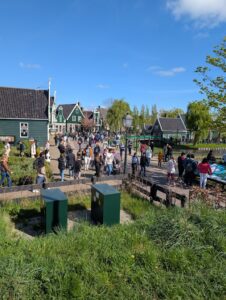
Peace and freedom bring many gifts. The one I’ll remember most from my time here is the quiet. Most Dutch people drive, but their cars are small. The loudest sounds come from motorcycles, which I’m hoping can go electric over the next five years, when what I call “The War Against Oil” is won.
The peace with which to build a society, and the freedom with which to build prosperity, have defined the Netherlands for decades now, have made it a place well worth visiting, and thinking about. I’ve loved every minute here and take many lessons back with me. The most important of them are Vrede and Vrijheid.
How much nicer can life be if we just make peace with ourselves and give one another the freedom to build their own prosperity.









